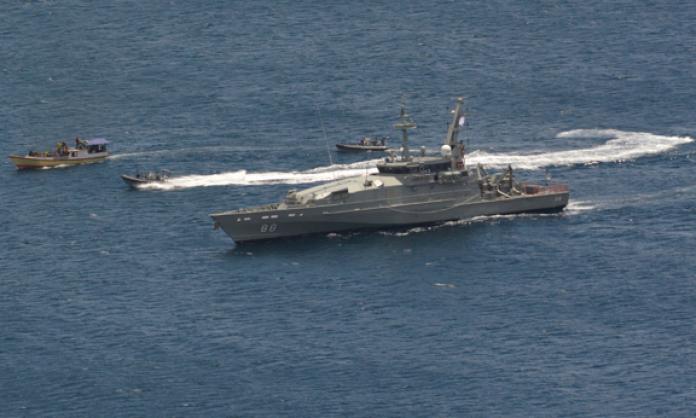The government’s proposal to ban any refugee sent to an offshore detention centre after 19 July 2013 from ever entering Australia is the latest move designed to further grind into the dirt those seeking asylum.
Just when you thought it couldn’t get any worse, politicians and bureaucrats were scrambling around to find a policy that could tighten the screws of one of the most racist, punitive, anti-refugee regimes on earth.
It’s obvious why the Liberals are proposing the ban. The government is deeply unpopular, in the midst of significant internal division and facing constant problems in the Senate. By whipping up a racist campaign against refugees and implementing a hard policy, the government hopes to win back some confidence, distract attention from some of its weakness and bring the Liberal Party closer together around something they can all agree on.
This ban, however, didn’t come from nowhere. Hostility to even the most basic rights of refugees has become deeply ingrained in the political make-up of the mass media, the major political parties, government bureaucracies and the Australian establishment. This has had the effect of making increasingly extreme anti-refugee policies acceptable.
Compare the reaction to this ban with the reaction to Donald Trump’s racist calls in the US. He is regularly described as a fascist, or at least an extreme racist.
Yet this proposal, and Australia’s refugee policies in general, are at least as bad if not far worse than Trump’s proposal to build a wall on the southern border of the United States.
How did we get to this point? Contrary to popular mythology, these kinds of mass human rights abuses don’t fall out of the sky because some horrible person gets an evil idea in their head. They are prepared through years of demonisation, of desensitisation, of cruelty and of hopelessness, which lead to a sense of inevitability.
It began when the Keating Labor government introduced “mandatory detention” for all those who arrived in Australia without a valid visa. This was followed in 1994 by “indefinite detention”. In Sydney, they started to build fences around the Villawood Detention Centre, which rested on the site of the old Migrant Hostel. Nick Bolkus, the Labor immigration minister, said at the time, “Our message to you [asylum seekers] is that you won’t have a chance”.
It was the beginning, setting the framework for the horrors that were to come. Under Liberal prime minister John Howard, the detention system was expanded. Offshore detention centres were set up in Nauru and on Manus Island. The Tampa, a Norwegian freighter ship that had pulled asylum seekers from a sinking vessel, was refused entry into Australia and stormed by the military. All this was done with the support of the ALP, with leader Kim Beazley insisting that the last thing Australia needed was a “carping opposition”.
This bipartisanship entrenched anti-refugee racism despite demonstrations, rallies and riots showing a significant layer of the public were disgusted by the government’s policies. The unravelling and eventual defeat of the Howard government, combined with this opposition, opened up a space in 2007. Many believed that, under Kevin Rudd and the new Labor government, things would change. No-one was prepared for what was going to happen.
Under the ALP, anti-refugee policies went beyond anything achieved by Howard. Border controls were tightened like never before, as “people smugglers” were branded “scum of the earth” and threatened with up to 20 years’ imprisonment.
Onshore detention centres were reopened and filled with thousands. When that wasn’t enough, the ALP reopened Nauru and Manus as well. Rudd said in 2013, announcing the latest atrocity, “As of today, asylum seekers who come here by boat without a visa will never be settled in Australia”.
The policies only got worse under Tony Abbott and now Malcolm Turnbull. We all know the result: the locking up of thousands of men, women and children in prison camps on bleak islands for an indefinite amount of time while they are abused by guards, ignored by immigration officials. Some set fire to themselves; others slip further into suicidal despair.
Out of all this a horrific consensus around the issue was forged: border control, stopping the boats, offshore detention centres, disincentives to come to Australia. They have become so normalised that some critics, such as academic Robert Manne, have accommodated to these anti-refugee policies, declaring that we have to accept deterrence as a necessary component of refugee policy.
Accommodation, though, gets us nowhere. We have to fight against the sense of the inevitable. We have to resist – uproot the structures that have put it in place, tear up the consensus that supports it and take on the establishment that implements it.









